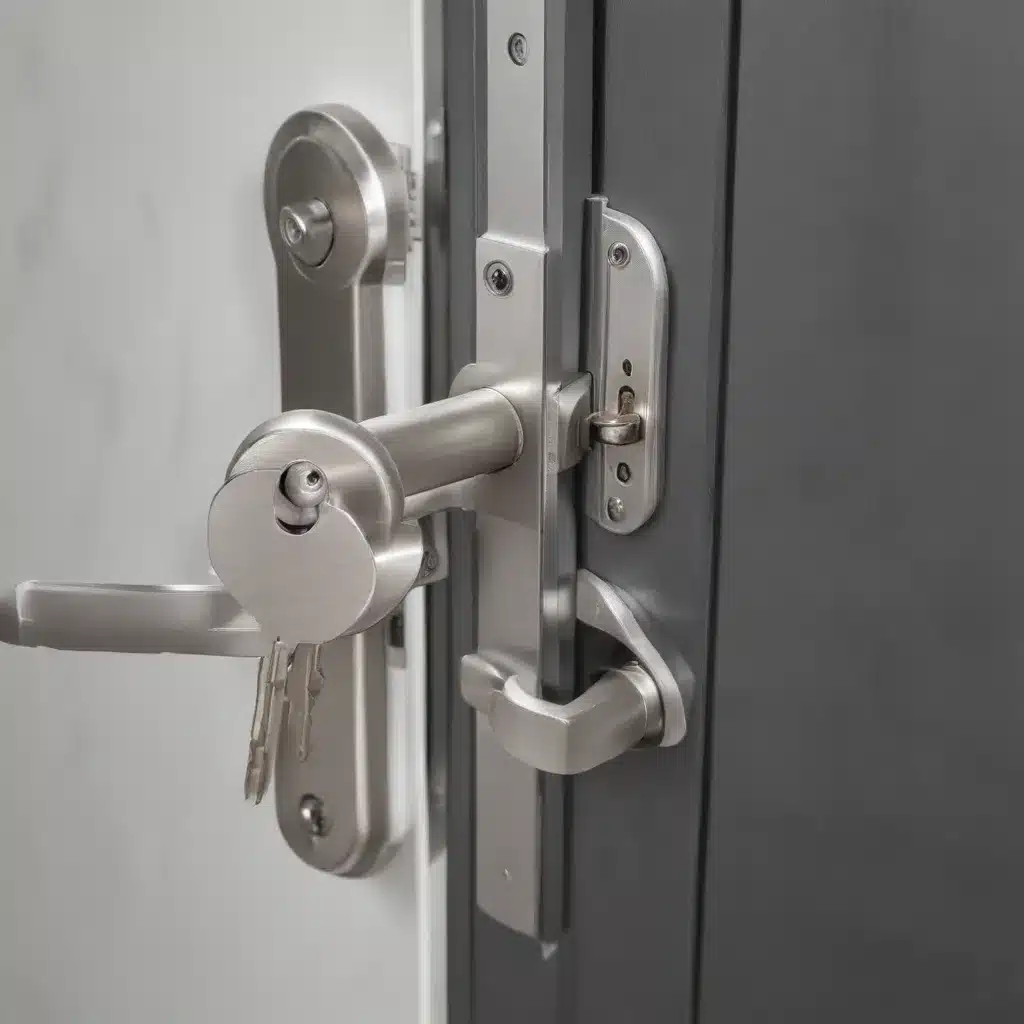
‘Unlocking the Potential of High-Grade Locking Systems’
As an experienced locksmith in Washington DC, I’ve seen the incredible advancements in high-grade locking systems over the years. These cutting-edge solutions go far beyond traditional mechanical locks, offering enhanced security, improved access control, and reduced maintenance costs for both commercial and residential properties.
Types of High-Grade Locking Systems
Mechanical Locking Systems
Mechanical locking systems rely on physical components like pins, tumblers, and cylinders to secure access. High-grade mechanical locks are designed with increased resistance to picking, drilling, and other tampering methods. They often feature heavy-duty construction, pick-resistant pin configurations, and hardened steel components.
Electronic Locking Systems
Electronic locking systems leverage digital technology to control access. These advanced locks can integrate with smart home/building solutions, allowing for remote monitoring, user management, and customizable access privileges. Popular electronic options include keypad locks, RFID-enabled access control, and biometric readers.
Biometric Locking Systems
Biometric locking systems use unique physical or behavioral characteristics, such as fingerprints, iris patterns, or voice recognition, to authenticate users. These high-security locks are increasingly common in commercial and government facilities, providing an extra layer of access control beyond traditional keys or access cards.
Components of High-Grade Locking Systems
Locks
The lock itself is the foundation of any high-grade locking system. Advanced lock models feature reinforced housings, pick-resistant mechanisms, and durable materials like hardened steel or brass. Depending on the application, locks can be configured for single-cylinder, double-cylinder, or mortise installation.
Cylinders
The lock cylinder is the internal component that houses the pin tumblers and allows the key to operate the locking mechanism. High-security cylinders are designed to resist picking, drilling, and other forms of tampering, often using specialized pin configurations or security pins.
Deadbolts
Deadbolts are a common high-grade locking solution, providing an extra layer of security beyond traditional spring locks. Advanced deadbolts feature extended throws, reinforced housings, and enhanced strike plates to resist forced entry.
Hinges
While not directly part of the locking mechanism, high-quality hinges play a crucial role in the overall security of a door or access point. Heavy-duty, tamper-resistant hinges help prevent the door from being easily removed, even when the lock is compromised.
Applications of High-Grade Locking Systems
Commercial Facilities
High-grade locking systems are essential for securing commercial properties, such as office buildings, retail stores, and industrial complexes. These advanced solutions help protect valuable assets, sensitive information, and the safety of employees and customers.
Residential Properties
Homeowners are also increasingly turning to high-grade locking systems to enhance the security of their homes. From reinforced deadbolts to biometric entry systems, these advanced locks provide an effective deterrent against burglary and unauthorized access.
Industrial Complexes
High-security locking systems are critical in industrial settings, where access control and asset protection are paramount. These facilities often require a combination of mechanical, electronic, and biometric locks to safeguard sensitive equipment, hazardous materials, and restricted areas.
Government Institutions
Government buildings, military installations, and other critical infrastructure rely on the most sophisticated locking systems available. These high-grade solutions must comply with stringent security regulations and often integrate with broader access control and monitoring systems.
Benefits of High-Grade Locking Systems
Enhanced Security
High-grade locking systems offer superior resistance to tampering, forcing, and other methods of unauthorized access. The increased security provided by these advanced locks helps deter criminal activity and protect valuable assets, sensitive information, and the overall safety of occupants.
Improved Access Control
Advanced locking systems allow for more granular control over access privileges, user management, and real-time monitoring. Electronic and biometric locks, in particular, enable remote management, customizable permissions, and detailed activity logs to ensure accountability and streamline security operations.
Reduced Maintenance Costs
High-quality locking hardware and components are designed for long-term durability, requiring minimal servicing and maintenance. This helps lower the overall cost of ownership and ensures the continued reliable performance of the security system.
Technological Advancements in High-Grade Locking Systems
Intelligent Locking Algorithms
The latest high-grade locking systems leverage machine learning and advanced algorithms to detect and respond to potential threats. These intelligent locks can analyze user behavior, environmental factors, and other data to dynamically adjust access protocols, trigger alerts, and prevent unauthorized entry.
Integration with Smart Home/Building Solutions
High-grade locking systems are increasingly being integrated with comprehensive smart home and building automation platforms. This allows for seamless connectivity, centralized control, and enhanced user experiences, while also improving overall security and efficiency.
Emerging Locking Technologies
The world of high-grade locking systems is rapidly evolving, with innovative technologies constantly emerging. From blockchain-based access management to quantum-resistant encryption and voice-activated locks, the future of security is becoming increasingly sophisticated and user-friendly.
Regulatory Considerations for High-Grade Locking Systems
Industry Standards and Certifications
High-grade locking systems must adhere to rigorous industry standards and certifications, such as ANSI/BHMA for mechanical locks and UL listing for electronic devices. Compliance with these standards ensures the quality, reliability, and safety of the locking hardware.
Compliance with Security Regulations
In addition to industry standards, high-grade locking systems must also comply with various security regulations, depending on the application. For example, healthcare facilities must meet HIPAA requirements, government agencies follow NIST guidelines, and retail/financial sectors adhere to PCI DSS mandates.
As an experienced locksmith in Washington DC, I’ve witnessed the remarkable evolution of high-grade locking systems over the years. These advanced solutions offer unparalleled security, improved access control, and reduced maintenance costs, making them an essential investment for commercial, residential, and government properties alike.
By staying up-to-date with the latest technological advancements and regulatory requirements, local locksmiths can provide their clients with the most effective and reliable high-grade locking systems available. Whether it’s integrating smart home features, implementing biometric access, or ensuring compliance with industry standards, we are committed to unlocking the full potential of these cutting-edge security solutions.
To learn more about our high-grade locking services, please visit https://www.locallocksmithwashingtondc.com/. Our team of experienced locksmiths is dedicated to providing tailored security solutions that meet the unique needs of our Washington DC clients.


